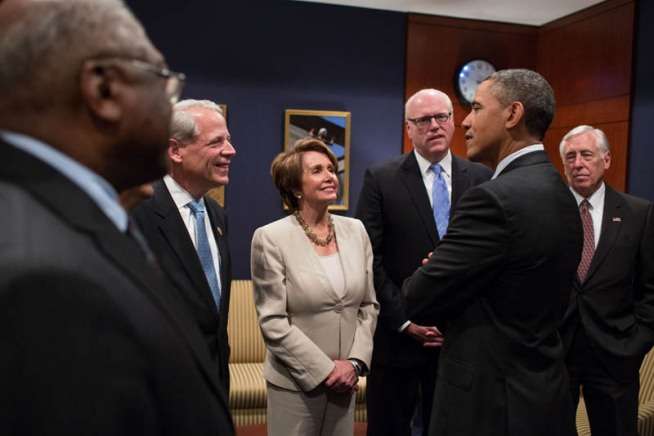Paul Ryan's and Barack Obama's Youth Problems
In unveiling the GOP budget plan for 2014, Rep. Paul Ryan published an op-ed in the Wall Street Journal that laid out some of the thinking that behind the latest iteration of "The Path to Prosperity." Here's a snippet:
…the most important question isn't how we balance the budget. It's why. A budget is a means to an end, and the end isn't a neat and tidy spreadsheet. It's the well-being of all Americans.
That line got under the skin of James Poulos, the libertarian-leaning commentator late of PJTV and currently with HuffPost LIVE. At Forbes, Poulos powerfully dilates on why Paul Ryan's sort of thinking leaves so many younger people cold.
In what world is the purpose of a federal budget to ensure the well-being of all Americans? Franklin Roosevelt's? Even if Ryan's critics on the left are dead certain that his budget does precisely the opposite, it's striking — and deeply revealing — that Ryan himself views government accounting in this way. This is a terrible foundation for trying to connect with the youth vote. Not only do younger voters who lean leftward sense a huge gulf between Paul's budget and his vision of a budget's purpose. Younger voters who lean libertarian recoil from both the budget and the vision. And younger voters who lean conservative are left holding the bag — stuck with the burden of trying to account for how it is that balancing the budget in 10 years, or whatever, is part of a morally urgent mission to achieve the well-being of all.
At a time when Michael Bloomberg's machinations underscore how insanely adaptable the mania for "public health" has become to any and all interventions into private life, Ryan's budget vision reads all to well into the script: we must act now to change, because everyone's well-being is at stake.

I think Poulos is onto something regarding younger voters - charitably defined as anyone under 45 years old - regardless of political ideology. The expectations for government are changing in all sorts of unanticipated ways. A majority of Americans continues to say that government is doing too much but a majority also wants the government to provide basic safety net functions. Folks such as Ryan and Barack Obama seem to read that situation as one in which the state can and should continue to provide not simply for the poorest among us but for the vast "middle class" that usually includes about 90 percent of people. That was George W. Bush's compassionate conservatism - and Ryan voted for No Child Left Behind, Medicare drugs, and TARP and auto bailouts - and it's Obama's expansive notions as well. I think it's credible to see Ryan (and many conservative Republicans, Obama, and the Senate Democrats (who have zero pulse among them) as in the same basic camp of still expecting the government to be a warm blanket that pretty much covers everything you do in your regular day.
What's different now is that there is an alternative out there - in the form of characters such as Rand Paul, Justin Amash, and other "wacko birds" - that is looking increasingly viable. When you've got conservative and libertarian Republicans attacking the garrison state for 13 hours straight and also championing copyright and IP reform, gay marriage, pot and hemp legalization, even self-styled "Young Guns" such as Paul Ryan and historically youthful presidents such as Barack Obama start looking pretty old pretty quickly.
My take on the Ryan/GOP budget, which got oddly positive responses from a number of small government groups despite pledging to increase annual federal spending by 42 percent over 10 years' time, is here. My take on the Senate Democrats' budget is here.
This seems like a good time for the Byrd's magisterial cover of Bob Dylan's "My Back Pages."


Show Comments (27)